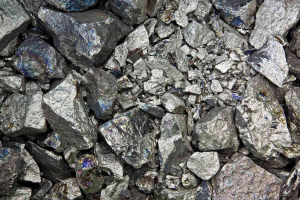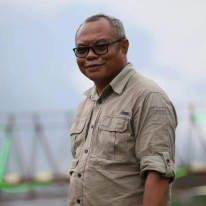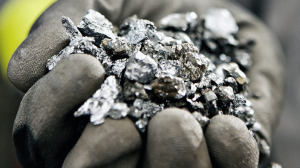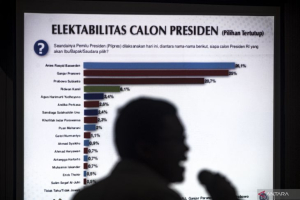Experts slam, warn of President Prabowo's defensive remarks on palm oil expansion
Experts and activists criticized President Prabowo Subianto's recent remarks, which defended Indonesia’s palm oil industry and support for its expansion.
President Prabowo's statements came across as an attempt to defend the Indonesian palm oil industry from criticisms over its environmental impacts, particularly from foreign countries such as in the European Union (EU).
“And I think in the future, we also need to plant more palm oil. We don’t need to be afraid of endangering − what’s it called − deforestation, right?” the president said on December 30, 2024.
He added that oil palms are trees and have leaves, in which they produce oxygen, absorbs carbon dioxide. So he asked why Indonesia was accused of deforestation, and further defended that these things do not make any sense.
Environmental activists and experts criticized this narrative as it downplays the scientific evidence about the role of oil palm plantations in driving deforestation, biodiversity loss and carbon emissions.
"Saying that palm oil is a forest crop is so bad because it seems like we do not understand the difference between forests and plantations," Herry Purnomo, senior scientist at the Center for International Forestry Research (CIFOR), and professor at the Bogor Institute of Agriculture (IPB), said as quoted by Mongabay on Friday, January 3, 2025.
This oversimplification of the issue could fuel greater environmental degradation and land conflicts, further undermining Indonesia's global climate commitments.
“If we defend palm oil blindly without a scientific basis, other countries will blindly accuse us as well. They will perceive all palm oil (produced in Indonesia) to be coming from deforestation,” he said.
The EU's new antideforestation regulation (EUDR) comes into effect at the end of 2025, with palm oil as one of the seven commodities that will be affected. It mandates strict traceability and sustainability for imports of these commodities into the EU market.
By downplaying environmental criticism, Indonesia could face backlash from markets like the EU that demand the products to be sustainable.
Implications
Forests replaced by oil palm plantations are not as effective in storing carbon. Clearing forest to establish palm plantations releases more CO2 than can be sequestered by growing oil palms on the same plot, studies demonstrated.
While a new oil palm plantation may grow faster and sequester carbon at a higher annual rate than a naturally regenerating forest that stores 300 tons of CO2 per hectare (ha) or 10 times more than oil palm plantations, it will still end up storing less carbon than leaving the original forest.
Carbon losses are even great on peatlands that store vast amounts of carbon in their soil, which is drained to prepare for planting.
Essentially, President Prabowo is downplaying the ecological damage by oil palm plantations, including deforestation, biodiversity loss and carbon emissions from land clearing and peatland destruction.
Deforestation, threats to biodiversity
Expansion in oil palm plantations has been a major driver of deforestation in Indonesia over the past 20 years, accounting for one-third of Indonesia's loss of old-growth forest, an area nearly 3 million ha, or half the size of Belgium.
CIFOR demonstrates that oil palm plantations were the largest contributor to deforestation in Indonesia between 2021 and 2022, resulting in annual greenhouse emissions of 200 million metric tons (mt), which coincide with the rapid expansion of oil palm plantations in Indonesia to meet the growing global demand.
It is also linked to biodiversity loss as oil palm plantations support far fewer species than do forests and often also fewer than other tree crops.
According to the International Union for Conservation of Nature (IUCN), a global wildlife conservation authority, oil palm cultivation already threatens at least 193 species listed as critically endangered, or vulnerable.
Meanwhile, there are still 2.4 million ha of intact forest that could be lost if palm oil expansion in the country is left unchecked. It is also likely to push threatened species closer to extinction. With 39 percent of amphibians, 54 percent of mammals, and 64 percent of birds are set to be affected by future expansion of the industry, as reported by IUCN.
It also raises concern to human safety, by increasing the risk of natural disasters. The clearing of forest for oil palm plantations increases flooding risk and water contamination for downstream communities as crops when it is young, is nowhere as effective at retaining water as the forest it replaced.
Recent research by Indonesian environmental and human rights advocacy group Satya Bumi and environmental NGOs − Sawit Watch and Madani Berkelanjutan − estimated that the maximum extent of oil palm plantations that Indonesia can host without doing further catastrophic damage to the environment is 18.15 million ha.
“If the development of the palm oil industry is left unchecked, there will be massive ecological and economic loss,” Andi Muttaqien, executive director of Satya Bumi, said on Friday, January 3, 2025.
Already have an account? Sign In
-
Start reading
Freemium
-
Monthly Subscription
30% OFF$26.03
$37.19/MonthCancel anytime
This offer is open to all new subscribers!
Subscribe now -
Yearly Subscription
33% OFF$228.13
$340.5/YearCancel anytime
This offer is open to all new subscribers!
Subscribe now






